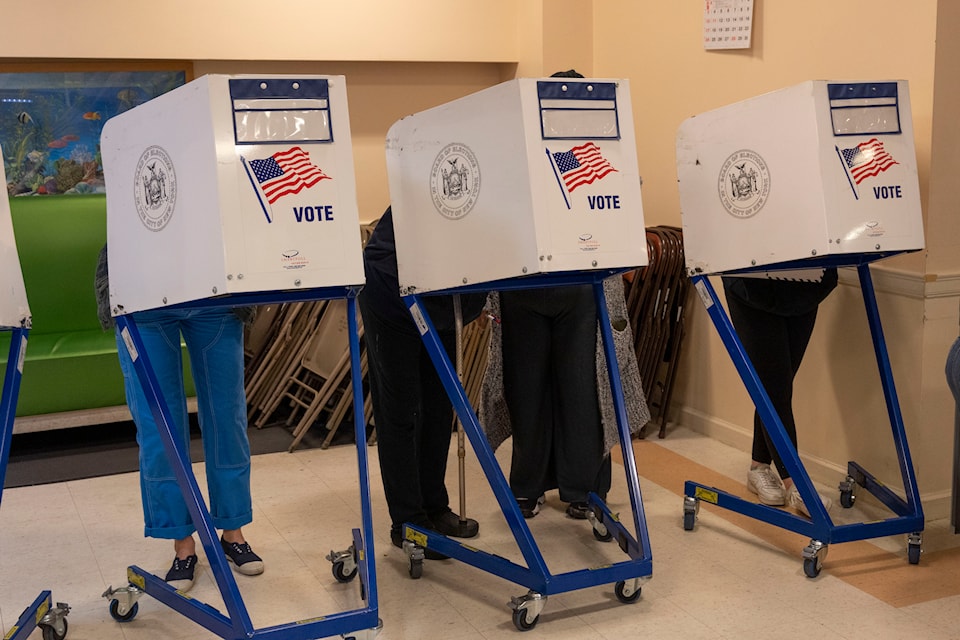Donald J. Trump made an extraordinary political comeback Tuesday as the 47th president of the United States.
This return to power follows the controversies surrounding the 2020 election denial, the insurrection at the U.S. Capitol, 34 felony charges and two alleged assassination attempts.
He secured the magic number of 270 Electoral College votes needed to clinch the presidency by winning Wisconsin, adding to earlier victories in North Carolina, Georgia and Pennsylvania.
Trump's Democratic rival Vice President Kamala Harris conceded on Wednesday.
American voters reached by Humber Et Cetera on election day reflected a myriad of feelings about the vote, including feeling their ballots aren't carrying the weight they should.
"It just doesn't feel like, we don't feel like (we) as the people actually have a choice. I just went out and did it just to say I did," Martieno Johnson, of Cleveland, said. “I don't feel like my vote went into the ballots, but hopefully it does matter.”
He was candid about who he supported: "I voted for Donald Trump."
Ohio voters backed Trump.
“When he was in office first, he ran America like the business that it is," said Johnson, explaining the reasoning behind his vote. "And he made treaties with people that you know, other presidents never even sat down with, you know."
But Johnson nevertheless did not feel a part of the process. He said canvassers explained the issues better to voters four years ago.
He said people were handing out pamphlets describing and explaining the issues to voters in 2020.
"And they explained it," Johnson said. "But this year around...they did not. They did not do that. They didn't explain what we were voting for. They didn't tell me what issue one was and to vote yes on this.
"They didn't explain because, like I said, regular people are not really into politics like that," he said. "You know what I'm saying? So, I mean, it's up to them if they want us to vote for something. It's up to them to explain it to us."
Kashious Londell, of New York City, said he didn't vote because he didn't think his ballot made a difference.
“I didn't vote at all by choice,” he said.
New York, a traditionally Democratic state, backed Harris, but pundits said the vote softened in New York City.
“The propaganda, you know, ... one of our candidates seems to be (slammed) more in the media than the others, you know, that, that creates a bias," Londell said. "That right there plays a role.”
Dwayne Lewis, also of New York City, said his input and that of others appear undervalued and when the effort is placed to go to the polls it is not of any substantial value in the race.
“I feel like propaganda makes me feel like it's an extravagant thing if you do vote because it does matter," he said. "But in reality, I don't think it is, honestly.”
— With files by Annicca Albano


.png;w=120;h=80;mode=crop)
